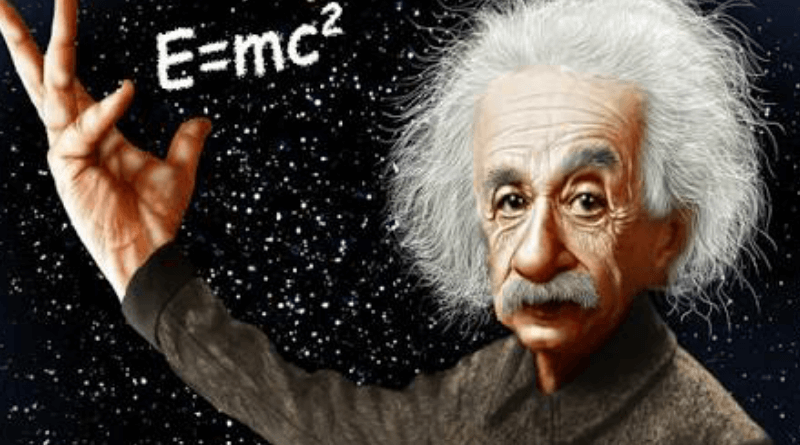Probably the greatest scientist to have lived, Albert Einstein, born on March 14, 1879, in Ulm, Germany, reached the pinnacle of human success with his great science equations to mankind. He is one among the few, who doesn’t need any introduction, yet the journey was no bed of roses for him. Albert had to fight against the odds to earn the title of greatness.
“The most beautiful experience we can have is the mysterious. It is the fundamental emotion that stands at the cradle of true art and true science.”
He was thought to be a complete failure in his childhood. He didn’t learn to speak until he was 4 and at the age of 16, Albert failed to pass the entrance exam into the Swiss Federal Polytechnic School located in Zurich (later the Eidgenössische Technische Hochschule ETH). Contrary to popular belief, Albert was good in math and physics; in his entrance exam, although he performed well in both subjects, his performance in other subjects was unsatisfactory and the overall result was considered academically poor.
His academic brilliance was far from what he is considered. He struggled to maintain even average scores during his graduation. Einstein’s reputation as a student was awfully poor in the teachers’ eyes and they never took him seriously.
“Logic will get you from A to Z; imagination will get you everywhere.”
Einstein’s father, in his final days, considered Albert an utter failure. Albert was disheartened on to the remarks of his father.
After completing graduation somehow from Swiss Polytechnic Institute at the age of 21, where he once nearly dropped out but pulled it through, he started selling insurance door-to-door for 2 years. He switched his job after 2 years and joined Patent Office as an examiner. There, he evaluated patent applications for a variety of things.
This changed his life forever. During his time in the patent office, he reviewed every patent application seriously and would sit down to analyze the mathematical equations, as patents usually have a lot of math included.
“Imagination is the highest form of research.”
Neither his father nor his teachers knew that one day the person whom they considered a failure will re-write the future of humanity and will give science some of the most powerful theories and equations that will lay the foundation of modern science.
His work on gravity and space made a huge influence on science – and when he told that light can bend, he was considered mad by the physicists of his time.
His personal life was disturbed because of his madness towards his work. He had to go through a divorce and lost his children. No one was there to support and believe in him, yet he was assured of his success. Deep inside his heart, he knew that he is right for his physics theories.
“The world as we have created it is a process of our thinking. It cannot be changed without changing our thinking.”
In the process, Einstein became physically and mentally sick. The huge amount of workload took its toll on his health and he would remain unhappy with his life and always exhausted.
This was not the end of his miseries. During this period, World War II broke and being a Jew, his life was on stake and all his years-and-years work was put on halt.
Note – Those who didn’t know about his Jewish thing. Adolf Hitler killed all the Jews he found in Europe. He with his teams murdered 6 million Jews. It was called The Holocaust/The Shoah.
Einstein had the sheer iron will and believed in his work. Later on, he proved the science community wrong. His works on space, time, gravity, and light were recognized and gave us a deeper understanding of the cosmos.
Albert Einstein, like all other greats, had undying patience and will to stand for what he believed. It took him many decades to keep researching, defending his work and proving the science community wrong.
In 1921, Albert won the most notable prize for any Physicist ‘The Nobel Prize’ and from there; the dawn of Quantum Theory began.
Notable Theories of Albert –
- General relativity
- Special relativity
- Photoelectric effect
- E=mc2 (Mass–energy equivalence)
- E=hf (Planck–Einstein relation)
- Theory of Brownian motion
- Einstein field equations
- Bose-Einstein statistics
- Bose-Einstein condensate
- Gravitational-wave
- Cosmological constant
- Unified field theory
- EPR paradox
- Ensemble interpretation
“If you can’t explain it to a six year old, you don’t understand it yourself.”

